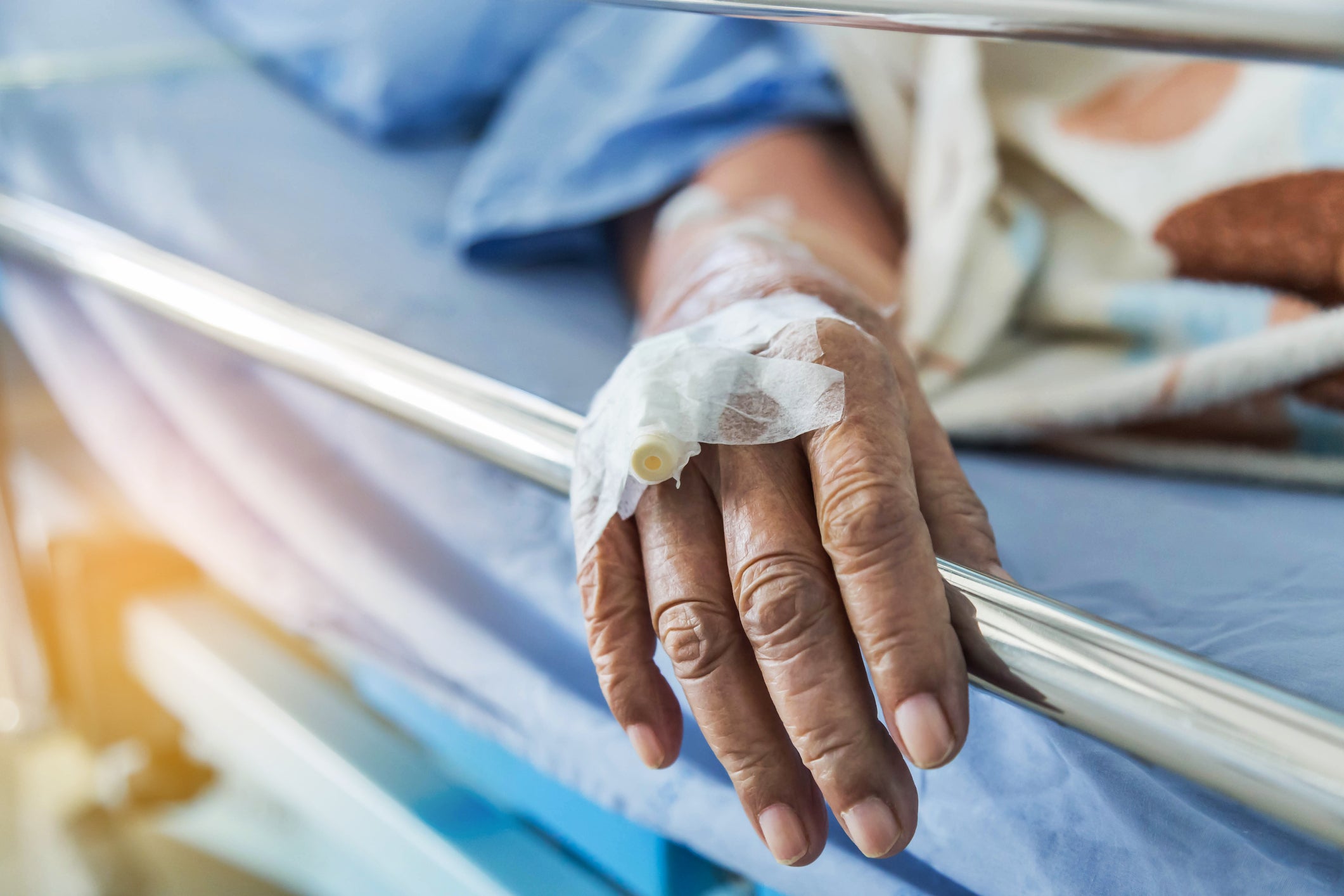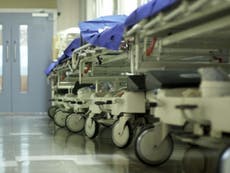Unlawful and blanket do-not-resuscitate orders may still be in place, regulator warns
Watchdog releases interim report after months of concerns over care for vulnerable patients

Your support helps us to tell the story
From reproductive rights to climate change to Big Tech, The Independent is on the ground when the story is developing. Whether it's investigating the financials of Elon Musk's pro-Trump PAC or producing our latest documentary, 'The A Word', which shines a light on the American women fighting for reproductive rights, we know how important it is to parse out the facts from the messaging.
At such a critical moment in US history, we need reporters on the ground. Your donation allows us to keep sending journalists to speak to both sides of the story.
The Independent is trusted by Americans across the entire political spectrum. And unlike many other quality news outlets, we choose not to lock Americans out of our reporting and analysis with paywalls. We believe quality journalism should be available to everyone, paid for by those who can afford it.
Your support makes all the difference.Elderly and vulnerable patients were subjected to unlawful and in some cases blanket do not resuscitate orders during the start of the coronavirus pandemic, the Care Quality Commission has warned, adding some orders may still be in place.
The care watchdog has launched a review of the use of do not resuscitate orders (DNARs or DNACPRs) during the pandemic after widespread concerns they were being used inappropriately.
In an interim report published on Thursday the watchdog said: “There is evidence of unacceptable and inappropriate DNACPRs being made at the start of the pandemic.”
Among the examples were cases where a DNACPR was put in place without consulting with the patient or their family — which can be a breach of human rights legislation.
It added: “Often the evidence we received was about an individual, but there were some examples where DNACPR orders were placed on numerous people routinely.
“For example, one told us the doctor on call had advised care home staff that if the older people in their care contracted Covid-19, they would have a DNACPR put in place. Another said doctors were refusing to visit a care home because they had had two residents die from Covid-19. Care staff were asked to take observations that they were not trained for, and all residents had a DNACPR in place.”
The CQC said in some cases families and patients had not been told they were subject to a DNACPR order, adding they were “often not finding out until the person was quite unwell. Sometimes the family were told the person had agreed to the DNACPR, but there were questions raised about whether this was informed consent due to reasons such as deafness or not speaking English, or from conversations that the family had with the person.”
More worryingly, the regulator said there were some instances where care had not been provided to the patients with a DNACPR order in place.
This included a care home not calling an ambulance straight away, a delay in calling doctors, or someone who felt pressured to agree to an advance Covid-19 care plan that stated that they would stay at home without treatment if they contracted Covid-19.”
The regulator has been commissioned by the Department of Health and Social Care to investigate the use of do not resuscitate orders during the pandemic. It said it had received 40 separate reports from patients and care providers, and where it had discovered inappropriate orders it raised this with the care provider responsible.
A do not resuscitate notice is supposed to help avoid elderly, frail and dying patients from being resuscitated via chest compressions that can leave people with broken ribs and is often unsuccessful in those who are at the end of their life.
While a DNACPR is a doctor’s decision and not subject to patient consent, it is unlawful to apply them in a blanket fashion to groups of patients and they must be made on an individual basis and after consultation with the patient and their family.
Not consulting with patients or their family is a breach of human rights laws and applying them to groups of patients or those with a non-life threatening condition, such as a learning disability, would also be a breach of the Equality Act 2010.
Earlier this year, Kate Masters, whose family won a landmark legal ruling giving patients the right to be consulted over DNACPRs in 2014, threatened the department with a judicial review over the government’s failure to provide meaningful advice and information about DNACPRs to patients and doctors.
The government said it would do this but has so far failed to do so.
Speaking to The Independent, Ms Masters said she found the examples cited by the CQC upsetting, adding: “This is not a new issue. I have been asking for a review of DNACPRs for the past 10 years and it affects 300,000 people every year who die with a DNACPR in place.
“It is good to see the government are finally taking this seriously and commissioning the CQC to do the review but I think the time frame is too short and the scope too narrow.”
She added: “The government need to listen to the CQC and take some action or we will just be going round in circles.”
Human rights lawyer Merry Varnery, a partner at Leigh Day solicitors, represented Kate Masters in her bid to get action from the government and has presented evidence to ministers over repeated unlawful DNACPRs.
She said: “Blanket DNARs and those done with no prior consultation without there being exceptional reasons are unlawful & violate human rights.”
The CQC said it was “clear there was confusion and miscommunication” about the use of DNACPRs at the start of the pandemic but there were warnings issued by itself, NHS England and other bodies over the inappropriate use of the orders.
It added: “It is possible that in some cases inappropriate DNACPRs remain in place. We expect all care providers to assure themselves that any DNACPR decisions have been made appropriately, in discussion with the person and in line with legal requirements and best practice.”
Dr Sarah Holmes from Marie Curie charity said: “We must ensure that there are no remaining DNACPR orders in place that dying people, or their families, may not be aware of.”
The CQC’s investigation will continue with a final report expected in February next year.



Join our commenting forum
Join thought-provoking conversations, follow other Independent readers and see their replies
Comments